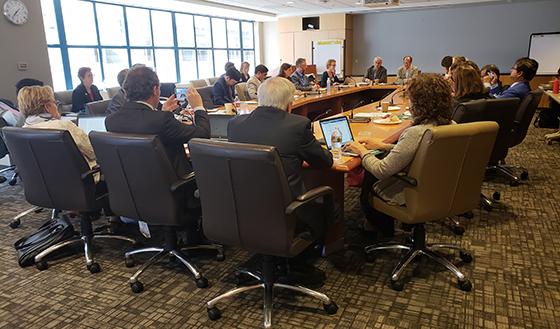Health care leaders from around the world met with representatives from government, international agencies, and the nonprofit sector to foster greater collaboration to achieve climate goals at Health Care Without Harm’s Global Roundtable on Sept. 11.
Hosted at Dignity Health’s headquarters in San Francisco in conjunction with the Global Climate Action Summit, the Global Roundtable featured presentations on how health care systems are contributing to climate policy, including the Climate and Health Alliance of Australia and the recently launched California Health Care Climate Alliance. Health and policy leaders from Bangladesh, China, India, the Netherlands, and the United Kingdom then discussed how these models could be adopted in other jurisdictions.
“This first-of-its-kind gathering sets the stage for greater collaboration among the health sector and policymakers at all levels of government around the world,” said Josh Karliner, Health Care Without Harm’s international director of program and strategy. “As we’re seeing in Australia and California, health care has a significant role to play in achieving national and subnational climate goals. The discussion today centered on how to leverage health leadership for climate action in all regions of the globe.”
The afternoon session focused on burgeoning efforts in health care around the world to adopt renewable energy and identifying pathways to accelerate this adoption in order to both decarbonize health care’s energy use in large health care systems, while also powering health in low-income settings, thereby promoting greater health equity and access.
Representatives from Kaiser Permanente talked about their investment in renewables in California, and specialists from Sustainable Energy for All highlighted how renewable energy is powering health off the grid and in grid unstable settings. The discussion that followed identified opportunities for advancing and accelerating this effort and helped set the stage for the announcement of health care commitments to 100 percent renewable electricity at the Global Climate Action Summit.
